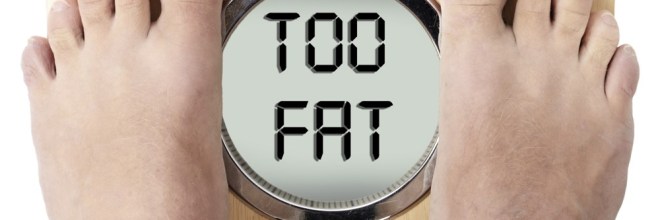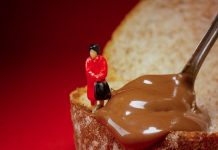
Contrary to popular belief, “fat shaming” doesn’t persuade folks to eat less and lose weight C actually, it could possess the opposite effect, researchers in the University College London (UCL) Health Behavior Research Centre report Thursday in the journal Obesity.
The study, that was funded by Cancer Research UK, checked out data of 2,944 adults during the period of four years and found that those who reported being discriminated against because of their size actually gained more weight than those who did not. After comprising baseline differences, the authors said that individuals who reported weight discrimination gained an average of 2.09 pounds, while those who did not lost 1.57 pounds.
According to UCL, the research participants were also asked whether or not they experienced day-to-day discrimination they believed to be due to their weight, including harassment and poor service in shops. 5 % from the participants reported experiencing weight discrimination, including 36 percent of men and women classified as dangerously obese.
The study authors asserted, to compound matters, these people are often treated disrespectfully by their very own doctors, said Gregory Walton and Edward Malnick from the Telegraph. Those health care providers, they added, often underplay the truth that there are many factors that may bring about obesity, including genetics.
UCL researcher and lead author Dr. Sarah Jackson told Walton and Malnick that much from the problem focused on the “language of blame” which is often directed towards overweight people, in addition to friends and family members who’re well-meaning but still find yourself pointing out something that has already been obvious to another person.
“Most those who are overweight know about it already and don’t require it stated for them. Telling them they’re fat won’t help C it is only will make them feel worse,” she said. “There are numerous different causes of obesity, yet lots of blame just appears to be on individuals along with a lack of perseverence. Raising awareness of a few of the factors involved will make it simpler not to blame people.”
Dr. Jackson was quoted by The Guardian as stating that there is “no justification for discriminating against people because of their weight. Our results show that weight discrimination doesn’t encourage weight loss, and suggest that it might even exacerbate putting on weight. Previous research has discovered that individuals who experience discrimination report comfort eating.”
Stress responses to such discrimination can increase an individual’s appetite, especially for less-healthy and much more energy-dense foods, she and her colleagues reported. They added that it has additionally been proven weight discrimination can cause individuals to feel less confident about participating in exercise, leading them to avoid physical activity.
While they saw a outcomes of discrimination and luxury eating, their research didn’t find any concrete evidence it directly caused putting on weight, BBC News noted. However, senior author Professor Jane Wardle, director from the Cancer Research UK Health Behavior Centre at UCL, said these studies clearly shows that weight discrimination is part of the obesity problem, not the answer.
“Weight bias has been documented not only one of the general public but additionally among health professionals; and many obese patients report being treated disrespectfully by doctors because of their weight,” she explained. “Everyone, including doctors, should stop blaming and shaming people for his or her weight and provide support, where appropriate, treatment.”
This is not the first paper this season to associate the “fat shaming” with obesity. In April, UCLA scientists discovered that females who’re told they are too fat with a parent, sibling, friend, classmate or teacher were more prone to be obese by age 19. Similar research published within the Journal of Experimental Social Psychology in January found that presenting fat people using the typical stigmas to be lazy or self-indulgent caused these to suffer from less self-control when it found eating afterward.

































